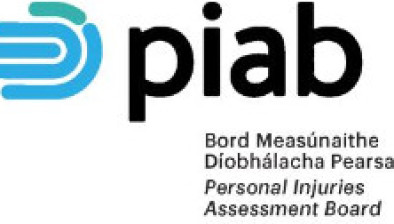High Court: Plaintiff not entitled to recover sick pay to compensate employer in personal injuries proceedings

The High Court has ruled that a plaintiff in personal injuries proceedings was not entitled to receive monies equivalent to his total sick pay in order to compensate his employer. The plaintiff claimed that he had provided an undertaking to his employer to repay approximately €40,000 in sick pay if his personal injuries claim was successful.

About this case:
- Citation:[2022] IEHC 227
- Judgment:
- Court:High Court
- Judge:Mr Justice Garrett Simons
Delivering judgment in the case, Mr Justice Garrett Simons held that the plaintiff’s contract of employment contained an unconditional entitlement to sick pay and that he was not obliged to repay it to the employer. It was held that monies for sick pay were only recoverable where a plaintiff was under a legal obligation to compensate their employer (Hogan v. Steele & Company Ltd [2000] 4 I.R. 587).
Background
In December 2011, the plaintiff was involved in a road traffic accident and sustained injuries to his neck and back. He subsequently issued personal injuries proceedings against the driver and the driver’s employer, Kilkenny County Council.
The plaintiff underwent several treatments, including spinal surgery, in order to reduce the pain and made a good recovery by May 2013. However, he still complained of soreness in the affected areas which caused him difficulties in his day-to-day life. He complained of weakness in the back and a debilitating neck pain. Additionally, the plaintiff claimed to have suffered psychological damage as a result of the accident. Specifically, he presented evidence that he had post-traumatic stress disorder, which developed into a severe adjustment reaction.
In 2018, the defendants conceded liability for the accident and the case progressed as an assessment-only matter. The defendants submitted that his injuries had largely resolved by 2013 and that the appropriate quantum was between €65,000 and €100,000.
The parties agreed that the matter could be assessed by reference to the medical expert reports without the need for oral examination. There were direct conflicts of opinion in the parties’ reports, particularly on the issue of the psychological damage. The defendants had obtained reports that the plaintiff did not suffer from psychological damage after the incident.
Additionally, an issue arose as to whether the plaintiff was entitled to be compensated for sick pay that had been paid by his employer. The plaintiff’s contract entitled him to sick pay but his solicitor had subsequently agreed to recover the sick pay on behalf of the employer.
High Court
In the principal written judgment, Mr Justice Simons held that the court was placed in a difficult position without oral evidence of the plaintiff’s medical condition. The reports contained irreconcilable conflicts on the psychological damage suffered by the plaintiff.
Ultimately, the court examined the defendant’s psychological expert report and held that it contained a “paucity of reasoning” for the defendants’ position. The plaintiff’s direct evidence of mental difficulties was largely unchallenged and there was no cogent psychiatric evidence which refuted the plaintiff’s claim.
The court stated that it was faced with a practical difficulty of deciding the case because it had to provide reasons for its decision. However, there was no material which would allow the court to prefer the defendants’ evidence. Accordingly, the court was bound to accept the plaintiff’s expert evidence.
The court then applied the Book of Quantum to the plaintiff’s injuries, awarding €70,000 for the physical injuries and €45,000 for the psychological injuries. With special damages, the plaintiff was awarded €173,000.
In a supplemental judgment, the court considered whether the plaintiff was entitled to recover sick pay monies on behalf of his employer. The court noted that a plaintiff was ordinarily entitled to recover sick pay monies where he was under a legal/contractual obligation to repay his employer.
However, in this case, the plaintiff’s contract had an unconditional entitlement to sick pay. The court held that the personal injuries regime was designed to compensate a plaintiff for their losses and not compensate a third party for a defendant’s wrongdoing.
The court considered Hogan v. Steele & Company Ltd and McGuinness v. O’Reilly (unreported, High Court, Morris J., 30 November 1992), which approved the position that a plaintiff was not obliged to repay their employer for sick pay unless it was a term of their employment contract.
The court stated that an injured party with an unconditional right to sick pay only suffered loss to the extent that there was a shortfall between the sick pay and the amount they expected to earn.
A plaintiff could not convert unrecoverable sick pay into a recoverable item based on a post-accident agreement with their employer, the court said. This was because a plaintiff was required to mitigate their loss, and waiving unconditional sick pay from the employer to visit the sick pay monies on the wrongdoer was not consistent with this principle.
Applying these findings to the present case, the court held that the plaintiff did not in fact provide an undertaking to reimburse the employer for the sick pay. Instead, the plaintiff merely confirmed that the monies would be refunded if the claim for sick pay was successful. Accordingly, there was no standalone obligation to pay monies to the employer.
In any event, the undertaking would not be enforceable because the parties would have been operating under a common mistake as to law, being the mistaken belief that the sick pay was recoverable against the defendants.
Conclusion
The court concluded: “Monies paid to an injured party by their employer during their absence from work due to personal injuries suffered as a result of the wrongdoing of a third party will only be recoverable against the wrongdoer where the injured party is under a legal obligation to reimburse those monies to their employer.”
In the circumstances, the plaintiff was not entitled to recover the sick pay as damages and, further, was under no obligation to repay his employer.











